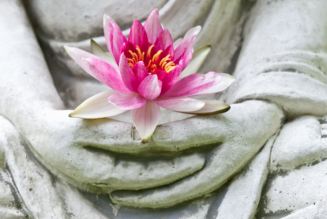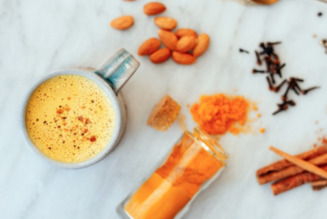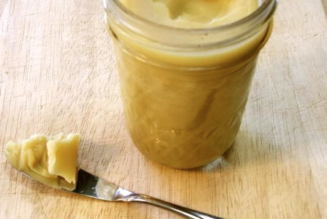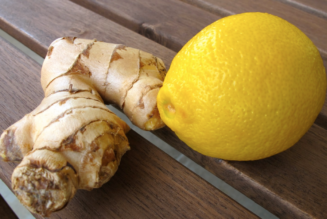5 Simple Ways To Balance Kapha Dosha
According to Ayurveda, there are three doshas called vata, pitta, and kapha. We can think of these three doshas as the guiding principles that keep all our bodily functions balanced and healthy.
“Health results from the natural, balanced state of the doshas.
Therefore, the wise try to keep them in their balanced state.”
– Charak Samhita
What Is Kapha Dosha?
Kapha, made up of the properties of earth and water, embodies structure and stability. Earth and water … slow, stable, down to earth, slow to anger, and easygoing! The Kapha-dominant take their sweet time, too. If you’ve heard the expression, “Slow and steady wins the race,” that’s a good example of Kapha. Kaphas may be slow to get going, but they are dependable and dedicated. At their healthiest, Kaphas possess excellent immunity; a robust figure; the ability to sleep soundly; and oftentimes thick, voluptuous hair, large eyes and radiant skin, too! Those who are Kapha-predominant may have larger-frame bodies and heavier builds. When in balance, they are the teddy bears among us — sweet in nature and a pleasure to be around. What person wouldn’t love to be around Kapha’s grounding energy? Kaphas are like the “slow down” pill for the other doshas. On the flip side, Kapha out of balance tends towards lethargy, feelings of sadness, occasional congestion, and “accumulation” of a variety of things: weight, water, possessions, etc. Kaphas often don’t want to throw anything away or let things go — be it an old sweater, or a relationship. They can become stuck in their ways and resistant to change. Remember, earth and water.
Sound familiar?
Feeling the need to get unstuck? Keep reading to learn a few tips for keeping Kapha well-balanced!!
1. Get Up, and Get Down!
Following a regular exercise routine is important for all doshas, but particularly for Kapha, since they naturally tend towards sedentariness and may gain weight more easily. Try out different kinds of exercise to see what suits your style and skills. Hopping on a treadmill is far from our only option! Consider swimming, cycling, rollerblading, dog-walking, dancing — anything that gets you breathing and your heart rate up.
Herbals for Those on the Move:
Joint Soothe II is a great herbal blend for soothing tired or achy joints.
Flexcel is fantastic for keeping yourself mobile and your body running smoothly during workouts.
Fatigue Free — boost energy, creativity and mental clarity with this go-to herbal!
2. Stay Warm and Dry
Those who are Kapha-dominant may be sensitive to cold and wet seasons (particularly wet). Kapha can become congested easily; if this is the case, dry heat may be beneficial — a heat lamp aimed at the chest or a heating pad under the back can help. Keep the nose, throat and lungs protected from harsh winter weather. Using a Neti pot is very helpful for nasal cleansing and reducing congestion.
Respiratory Health Products:
Clear Breathe, Organic Clear & Soothe and other Respiratory Health products are all excellent for maintaining Kapha respiratory balance.
3. Clean Up Your Act
Back to that tendency towards accumulation… this applies as much to physical possessions as anything else. Kaphas like to keep things around, and their spaces can become quickly cluttered. If you have this tendency, try spending a few days going through your possessions, decluttering and “tidying up” by organizing your belongings and sorting items to be donated — while items that are useful or bring you joy belong in your home and in your life.
Emotional Balance is Key
Kaphas, as mentioned above, are loyal, caring, compassionate and sentimental. Out of balance, they can become lethargic, apathetic, depressed and clingy. Keep Kapha-heavy emotions balanced with stimulating activities such as yoga or other aerobics; play upbeat, lively music and dance around the room like a carefree kid! Utilize self-massage (abhyanga) before showering or bathing — just the act of massaging and stimulating the skin can go a long way towards boosting circulation, energy and positive feelings, not to mention the benefits that come from taking care of oneself and prioritizing one’s own well-being. Garshana Gloves are great for a dry abhyanga. If emotional heaviness is weighing you down, Blissful Joy is formulated to help uplift the emotions and alleviate feelings of sadness. In addition, practicing Transcendental Meditation® twenty minutes twice a day offers a direct means to transcend and restore balance to both mind and body. If you have not learned Transcendental Meditation, then practice your technique of choice.
4. Follow Your Nose
Aromas can be a powerful tool for balancing Kapha. Try Stimulating Kapha Aroma Oil, Sniffle Free Aroma Oil, or Blissful Heart Aroma Oil in a diffuser, or burn Suraj Sandalwood Incense for an instant environment change.
5. Eat For Your Type
Kapha diets in general should be “lively” and full of energy. This can help boost Kapha’s otherwise sluggish digestion.
- Almost all vegetables are excellent for Kapha, but reduce consumption of sweeter or juicier vegetables such as tomatoes, sweet potatoes and zucchini.
- Kapha predominant individuals can enjoy spicy or pungent foods to help stimulate their digestion.
- All spices help pacify Kapha. Organic Kapha Churna is an excellent addition to meals. Try to reduce salt, though, as an excess of salt can cause fluid retention.
- Reduce the intake of nuts and seeds, though pumpkin and sunflower seeds are very good for Kapha.
- Lighter fruits like apples, cranberries and apricots are also good.
- Organic Stimulating Kapha Tea is a great beverage to help balance Kapha. Otherwise, a lively ginger tea is an excellent choice.
- Use only small amounts of oils and fats for cooking. Ghee, extra virgin olive oil, and almond oil are among oils that are beneficial for Kapha.
- Reduce consumption of grains such as oats, rice and wheat, and favor barley, millet, corn, buckwheat and rye.
It’s also important to make dinner the lightest meal of the day, and to eat at least 3 hours before going to bed; eating a meal right before bed can slow digestion and make it difficult to get a good night’s sleep.
Herbals for Digestion:
Organic Digest Tone, Triphala Plus is a great addition to a Kapha diet. Triphala helps stimulate digestion and elimination and acts as a detox for the gut. This is very important for slower-moving Kapha-dominant physiologies. Keeping Kapha in balance and happy is relatively easy to do. Turn practices and habits into a routine; make that routine simple, fun and stimulating — both intellectually and physically. Doing so allows us to reap the many benefits of vibrant good health and boundless vitality, and to enjoy the best qualities that Kapha dosha has to offer.
Disclaimer
The sole purpose of these articles is to provide information about the tradition of ayurveda. This information is not intended for use in the diagnosis, treatment, cure or prevention of any disease. If you have any serious acute or chronic health concern, please consult a trained health professional who can fully assess your needs and address them effectively. If you are seeking the medical advice of a trained ayurvedic expert, call or e-mail us for the number of a physician in your area. Check with your doctor before taking herbs or using essential oils when pregnant or nursing.



![Female Health: Amenorrhea [cessation of menses] – An Ayurvedic Perspective](https://healthyayurveda.com/wp-content/uploads/2015/07/1.-Amenorhea--327x219.png)




